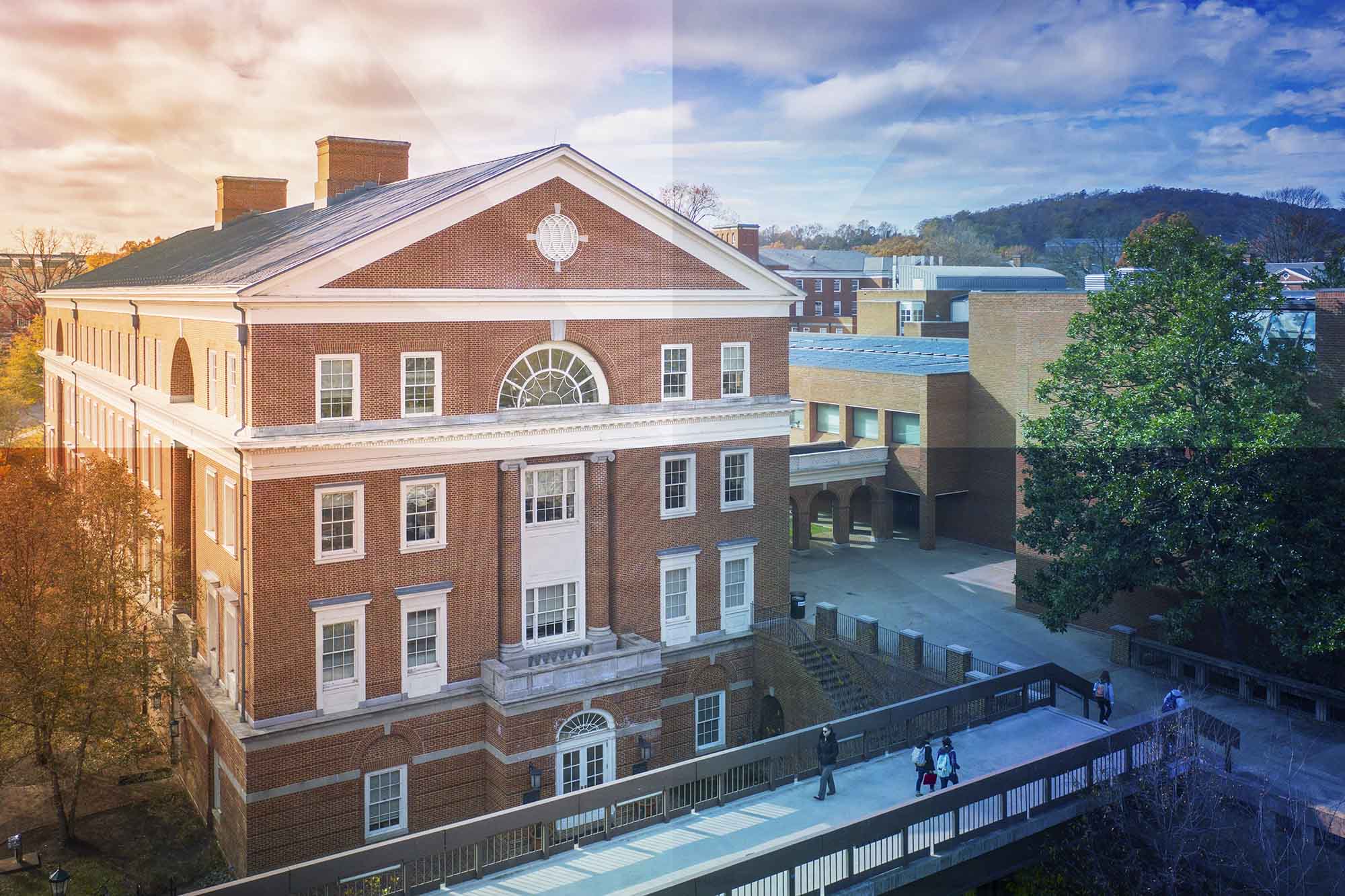When Filip Loncke teaches his “Psycholinguistics and Communication” course at the University of Virginia, he likes to begin by asking his students one question: What languages do you speak?
A typical class of about 200 students often know as many as 30 distinct languages. Once, Loncke said, a smaller class of just 30 students counted nearly as many languages as students.
“There’s excitement from the students about that discovery – that we have all this linguistic diversity and richness here, right here on Grounds,” Loncke said. “It’s really a treasure of information and diversity that we have hidden in plain sight.”
Of all the diversity within the UVA student body, linguistic diversity – the wide range of skills in different languages and dialects that students possess – typically goes unnoticed. Linguistic diversity can take many forms. Students may be bi- or multi-lingual. They may shift between dialects of English in different settings, understand a family language they can’t speak, or speak a language they can’t write. While many offices and student groups celebrate diverse cultures and ethnicities represented on Grounds, there is no systematic registration of students’ language abilities.
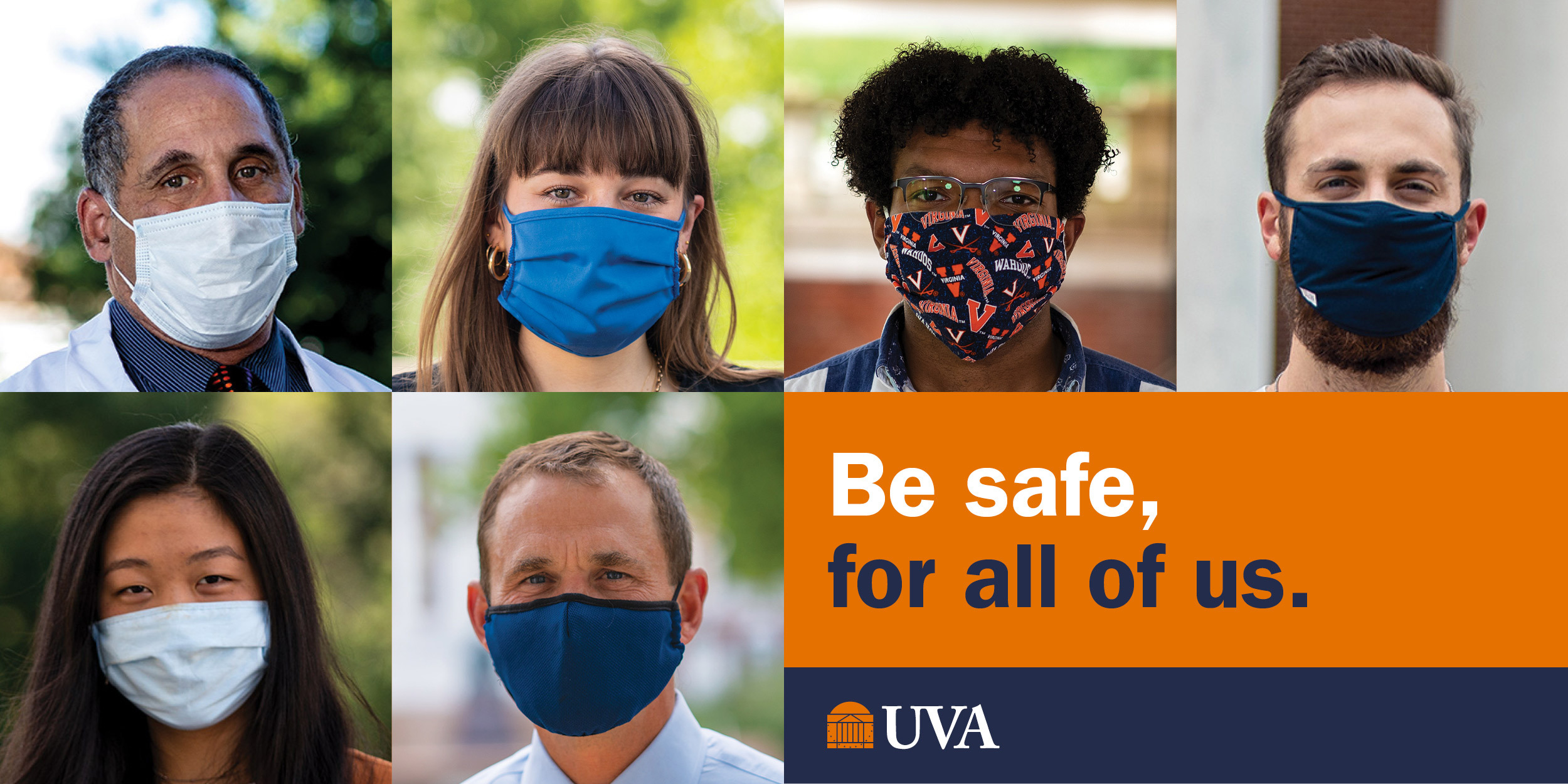
Loncke, a professor in the School of Education and Human Development who researches the cognitive processes behind different types of communication, has long been interested in studying linguistic diversity at UVA. In a new interdisciplinary project, called “So Many Ways to Say ‘I Belong at UVA’: Documenting Linguistic Diversity Among the UVA Student Body,” he and his research team hope to finally bring this invisible facet of diversity to the surface.
The project was funded in 2019 by the Jefferson Trust, an initiative of the UVA Alumni Association that invests in innovative projects that impact the University community. While they were briefly derailed by the pandemic, the researchers have adjusted to a versatile plan that can work either remotely or in-person. A team of 10 undergraduate students, trained to conduct one-on-one interviews, will engage in recorded discussions with their peers to catalog and celebrate the linguistic diversity that exists at UVA.
Affirming Identity Through Language
To understand why linguistic diversity matters, it’s important to understand how language intersects with identity. “Culture and race and language can travel together, but they’re not the same thing,” said April Salerno, an assistant professor of education and a collaborator on the project. “They don’t always go together in the ways that people think or assume that they do.”
Language, on its own, is an important piece of an individual’s identity. People with skills across multiple languages can sometimes feel like they have different identities for each language, too.
“In the U.S., English is such a dominant language – that has advantages, but it makes us blind to the diversity that is there,” said Loncke.
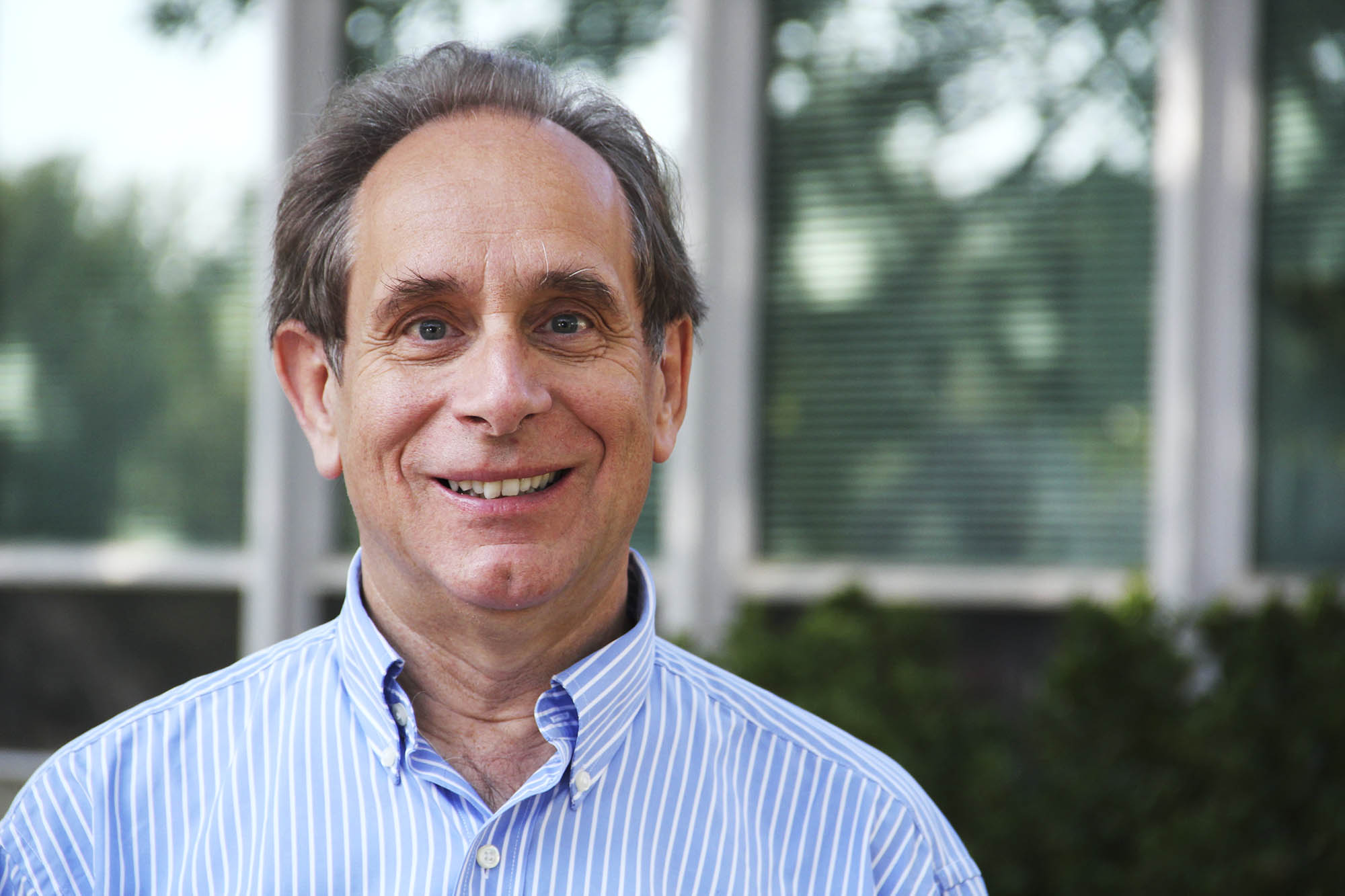
Education professor Filip Loncke is leading a new interdisciplinary project called “So Many Ways to Say ‘I Belong at UVA’: Documenting Linguistic Diversity Among the UVA Student Body.” (Contributed photo)
When there is a strong norm to conform to one particular language, those aspects of student diversity can be lost. For example, some students may feel that they can’t express themselves fully if their English is not as strong as their peers. In other cases, students who don’t speak a family language may struggle with a sense of disconnection from their cultural heritage. When linguistic diversity remains hidden, so do important pieces of students’ identity.
“Recognizing and valuing those identities is an extension of recognizing and valuing that person,” Salerno explained. “When we communicate to people that we care about their first language, then we communicate to them that we care about them. I believe, and my research upholds, that affirming people’s multilingual identities is an important part of affirming them as individuals and as learners.”
Salerno, who speaks Romanian, recounted a personal experience of connecting by pure chance with a fellow Romanian speaker in her Ph.D. program at the University. The opportunity to engage with coursework across multiple languages helped her feel more connected to both the course content and the University community.
Of course, creating a more welcoming linguistic environment doesn’t just benefit students with capacities in multiple languages. “I would like all students at UVA to be aware of [what it’s like to be bilingual], because that’s an understanding that they can use in the rest of their lives, including their professional lives,” Loncke said.
Unlocking the Resources of Multilingualism
Multilingualism is also a powerful academic and social resource.
In her work with teachers who are preparing to teach English learners, Salerno said she often talks about how to encourage and support students in using all of their languages as resources for learning.
“Unfortunately some aspects of popular culture have depicted language learners as always needing things, or as a challenge for teachers,” she said. “Through my work, I try to turn that narrative around to focus on the great resources that multilinguals come with and contribute to a community.”
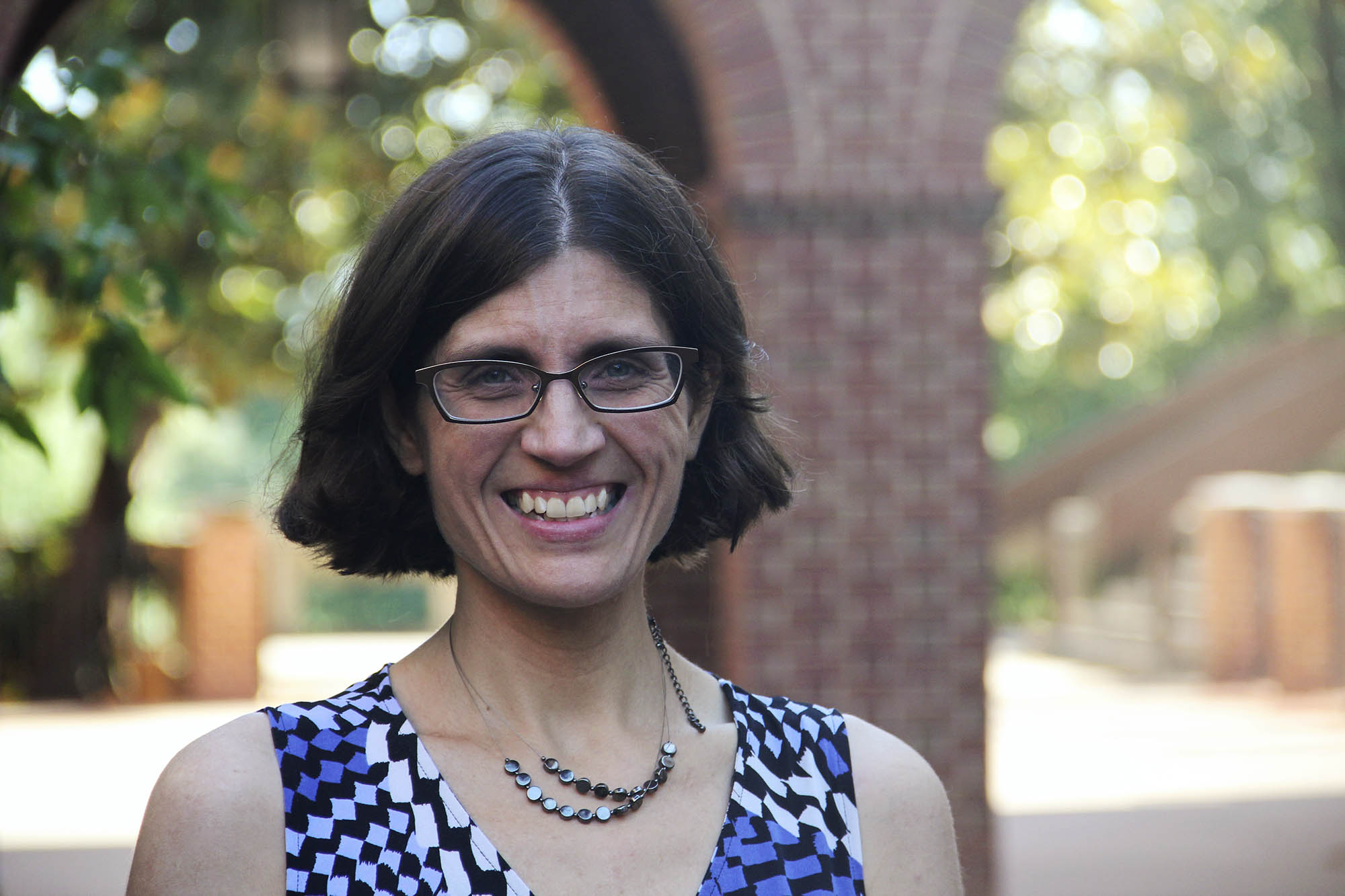
April Salerno, an assistant professor of education, is a collaborator on the project. (Contributed photo)
The resources that people who are skilled in multiple languages can access include the ability to connect with others in a certain language, deeper and richer understandings of cultural ideas and perspectives, and knowledge of words or phrases that don’t directly translate to English. The ability to switch between languages itself is a cognitive resource – like a kind of mental exercise.
On Grounds, raising awareness about the rich linguistic environment at UVA could open up countless resources, including the chance to connect with diverse communities and cultures in new and deeper ways.
“On some college campuses, students have been actively discouraged from using their home languages, and I find that tragic and short-sighted in overlooking what students could be accomplishing if you unleash their full capability by giving them access to their range of language,” Salerno said.
Cross-disciplinary and Collaborative
The project cuts across multiple areas of study at the University. Co-director Lise Dobrin, an associate professor of anthropology and for many years director of the interdisciplinary program of linguistics in the College of Arts & Sciences, and Mark Sicoli, an assistant professor of anthropology, will lead the training for the team of undergraduate interviewers – preparing them with a host of transferable skills such as interviewing methods, videography and leadership skills.
In her courses, Dobrin often encourages students to explore their own family linguistic heritage, a practice that has led her to appreciate the vast and complex linguistic landscape at UVA and the need to recognize these skills within the UVA community.
“As for the students we train to work on the project, they will gain skill in good recording methodology and learn about ethnographic interviewing, which is more about conversational listening than about direct questioning,” she said. “I believe each recording encounter will give the students involved a whole new world of social experience to mull over.”
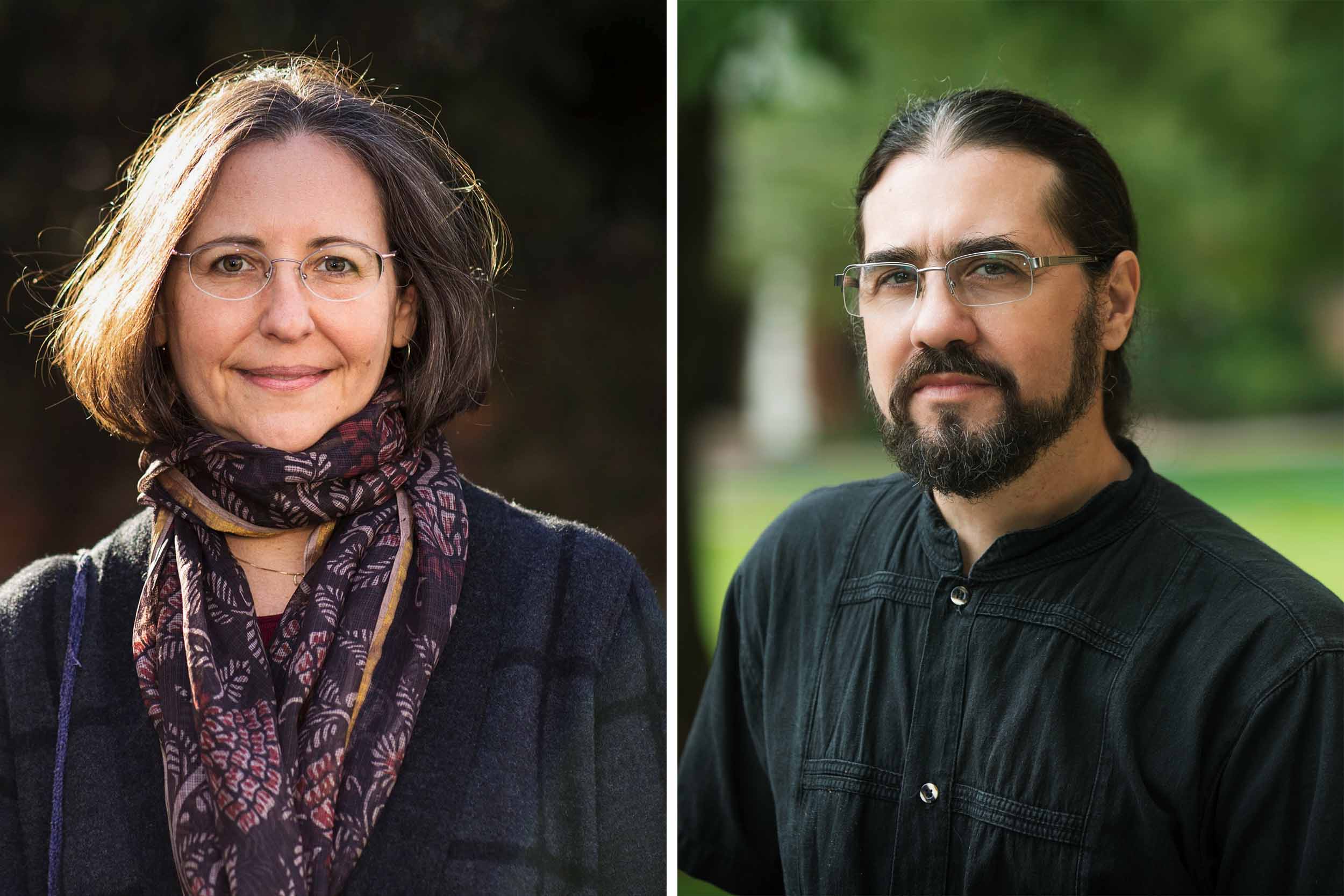
Lise Dobrin, an associate professor of anthropology, is co-director of the project. Mark Sicoli, an assistant professor of anthropology, is training undergraduate interviewers. (Photos by Dan Addison, University Communications)
During the interviews, students will engage in deep discussions about the countless ways that language shapes our lives. They may talk about which languages they dream in, how their language abilities help them connect with others, or what it feels like not to share a language with your parents, among other topics.
The team plans to donate the recordings to UVA’s Special Collections Library as an artifact of student life. They will also share insights and collaborate with the Office of Admission and the Office for Diversity and Equity to raise awareness of linguistic diversity among both current and prospective students.
Ultimately, they hope this project is just the beginning. Ideas for future research include expanding the project to look at the many varieties of English spoken around the world and within the U.S., including British English, Chicano English and African-American Vernacular English. Outside of UVA, Loncke hopes the project can become a model for other institutions – in Virginia, the U.S., or even internationally.
For now, though, Loncke is thrilled by the opportunity to celebrate the impressive linguistic diversity on Grounds. If he had to guess, he expects there may be 100 or more ways to say, “I belong at UVA.”
Media Contact
Article Information
September 24, 2020
/content/hidden-plain-sight-exploring-linguistic-diversity-uva

